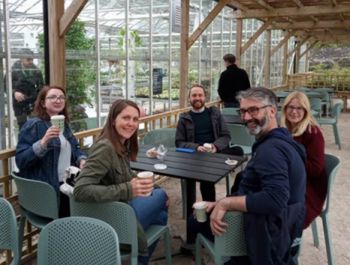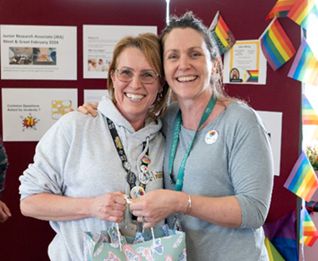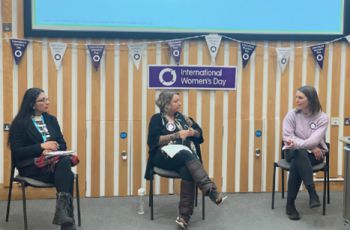News
See our news stories for culture, equality and inclusion at Sussex.
Staff survey case study: School of Life Sciences tackles workload, wellbeing and inclusion
Posted on behalf of: Amy Horwood, Operations and Projects Manager, School of Life Sciences
Last updated: Thursday, 15 August 2024



The School of Life Sciences has focused on staff workload, wellbeing, and developing an inclusive and supportive environment as a result of feedback from previous staff surveys. Find out more from Amy Horwood, Operations and Projects Manager:
Promoting fairness and transparency of workload
In response to concerns raised in the staff survey over the fairness of workload allocation, Life Sciences was one of the first Schools to pilot the Planning and Academic Workload System (PAWS), which is an off the shelf system that we developed to suit the School.
PAWS is now well established in the School and has been used every year since 2021 to capture workloads and help allocate teaching and admin tasks. PAWS works by assigning a time tariff to tasks such as preparing a lecture, exam marking and student project supervision. PAWS doesn’t capture everything in an academic’s varied workload, so line managers also factor in additional duties and don’t rely on it in isolation.
PAWS has been particularly helpful for itemising workload for departmental roles such as Directorships or Head of Department. Advertising the post as a certain proportion of a full time equivalent (e.g. 0.5 FTE) helps promote reallocation of teaching and admin tasks when someone takes on one of these roles. This, in turn, helps to improve diversity and inclusion in senior posts by making sure the roles are not layered on top of people’s existing workloads.
PAWS has brought major improvement to workload management within Life Sciences, and we continue to explore ways to make sure it better aligns with the reality of day-to-day work.
Building a culture of respect, understanding and mutual support
By hosting educational events, workshops and initiatives, and celebrating cultural and social identities, the School of Life Sciences aims to make all our staff feel valued and empowered. A wide variety of events have been hosted throughout the year, including wellbeing walks in Stanmer Park which have been a good chance for people to unwind, and chat over a coffee at the end. Staff family parties have included a range of fun activities such as a bouncy castle and a Bake Off competition!
Two Equality, Diversity and Inclusion (EDI) Roadshows showcased activities and support across the School and prizes were awarded to staff and students recognising their outstanding effort towards the School’s EDI strategy. LGBTQ+ History Month Events also saw scientists and students in the School team up with the Schools of Psychology, Mathematical and Physical Sciences, and Engineering and Informatics to share resources and hold talks on contraception and relationships.
International Women’s Day activities included talks on helping women to thrive amidst spiralling workloads and exploring neurodiversity in women. The School also contributed to the ‘Women in Sussex’ photo exhibition organised by Elizabeth Rendon-Morales from Engineering and Informatics. The Period Dignity Project, set up in the School of Life Sciences, has been providing free products throughout the year and at Welcome Week for freshers.
If you would like more information about these initiatives, please contact Amy Horwood at: a.horwood@sussex.ac.uk.
About our staff survey updates
Our monthly case studies highlight how Schools and Professional Services Divisions are using feedback from the staff survey to improve staff experience. You can view previous case studies, and find out more about the survey, on the staff survey webpage.